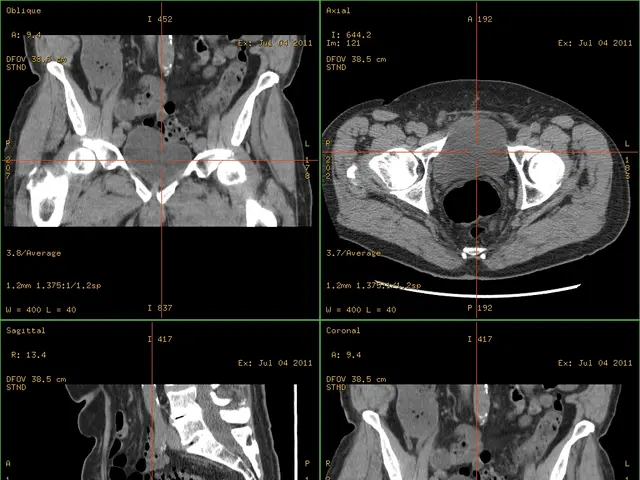Is it common to feel embarrassed about living with Huntington's Disease?
In the realm of health and well-being, more research is needed to fully understand the impact of shame on individuals, particularly in the context of conditions like Huntington's Disease (HD). A recent study aimed to shed light on this issue, focusing on the impact of health-related shame on behavior and health.
Health-related shame can have profound negative consequences, leading to social withdrawal, low self-esteem, emotional suppression, and decreased engagement in health-promoting behaviors. This, in turn, can worsen health outcomes. For HD patients, who may experience symptoms and stigma that can provoke shame, this internalized stigma can lead to emotional suppression and cognitive dissonance, intensifying anxiety and depressive symptoms.
In the context of HD, cognitive-behavioral therapy (CBT) can be a valuable approach to managing these effects. CBT helps by targeting the thoughts and beliefs that underlie shame and stigma. It encourages individuals to recognize and challenge distorted self-perceptions and societal stereotypes, replacing them with more flexible, self-accepting perspectives. This approach reduces embarrassment and self-judgment, which can liberate individuals from shame’s paralysis and support resilience and healthier behaviors.
CBT can assist HD patients by improving emotional regulation, enhancing coping skills, and addressing negative self-beliefs, which facilitates better psychological adjustment and may improve engagement in therapeutic and supportive care. By reducing internalized stigma and feelings of embarrassment, promoting self-acceptance despite disease symptoms, enhancing emotional expression and reducing suppression, encouraging adaptive coping and treatment adherence, and supporting psychological resilience against social isolation and depression, CBT can significantly improve the quality of life for HD patients.
Practicing self-reflection, or evaluating one's own thoughts, emotions, and feelings, can also be beneficial. It can improve self-awareness, confidence, memory power, and productivity. A cognitive-behavioral therapist evaluates a patient's cognitive and behavioral processes and works to change their unrealistic or unhelpful thoughts using CBT tools.
It's essential to consider the impact of shame on people's health, as it is widespread in healthcare but often unnoticed. Shame can negatively affect health by avoiding healthcare, not taking medication, or altering health-related behaviors. For instance, Acute Shame Avoidance Behavior, the avoidance of healthcare due to embarrassment, can have detrimental effects on disease management.
In some families with HD, suicide is a concerning issue, with nearly 8 percent of participants reporting suicide. Support and understanding from counselors can create a feeling of well-being in HD patients. Being at ease with oneself and not caring what others think about one's condition are important for living a normal life with HD.
Moreover, biological mechanisms suggest that shame can affect the immune system, making it harder for the body to fight off illnesses. Social isolation and misery can lead to suicidal thoughts in HD patients. CBT can help individuals cope with the social pressure and feelings of shame associated with having HD. It can also help individuals suffering from depression or anxiety by changing their dysfunctional emotions, behaviors, and thoughts.
In conclusion, managing health-related shame is a crucial aspect of healthcare discussions. By understanding and addressing shame, we can improve the health and well-being of individuals living with conditions like HD, enhancing their quality of life and supporting their journey towards recovery.
Science reveals that health-related shame can have detrimental effects on an individual's mental health, leading to social withdrawal, emotional suppression, and decreased engagement in health-promoting behaviors. In the context of mental health, cognitive-behavioral therapy (CBT) can be a valuable approach to managing these effects, particularly for patients with health conditions like Huntington's Disease, as it helps to reduce internalized stigma and feelings of embarrassment, promote self-acceptance, and support psychological resilience against social isolation and depression.




